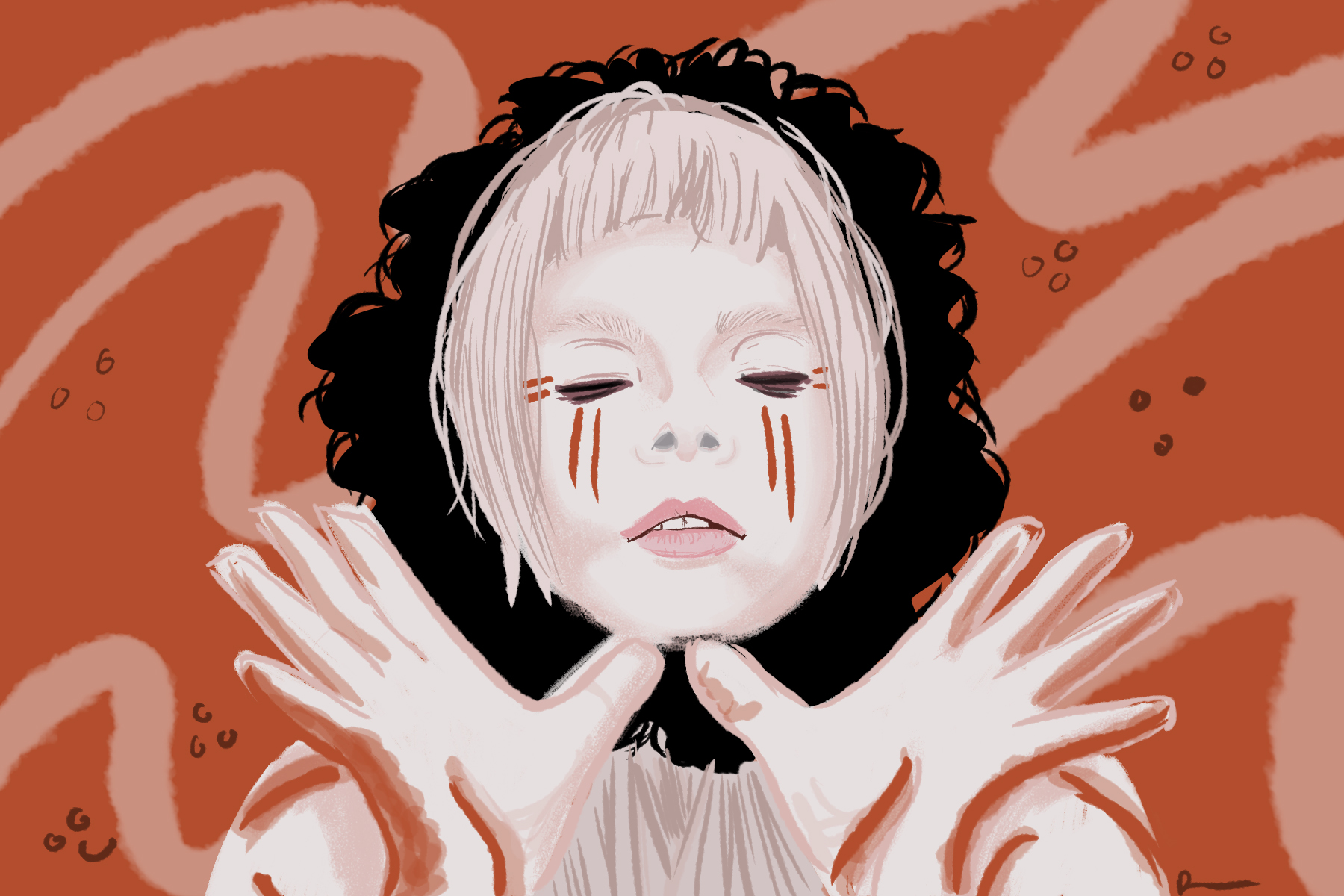With musicians come albums, but with great musicians come art, and Aurora, 23, has already reached a high artistic level in her music career. Since she was just 16 years old, her otherworldly music has graced the ears of many around the world. Now 21, her talent has garnered 2 million monthly streams on Spotify and several awards. Her latest release, “A Different Kind of Human,” is the second in a planned series of albums, which she individually refers to as “steps.” It is a piece that fits perfectly in Aurora’s fairytale-sounding body of work, while marking a dark departure from her 2018 album, “Infections of a Different Kind.”
Aurora’s out-of-the-woods appearance and haunting music has made the young folk-electronica singer a darling of pop. There’s no doubt Aurora is this generation’s avant-garde pop princess, as she’s constantly compared to artists like Björk and Grimes and has stated that she continually takes inspiration from Leonard Cohen.
While her last album, “Infections of a Different Kind,” stayed true to Aurora’s soothing and whimsical fairytale persona, “A Different Kind of Human” is a matured and mainstream jump from the ethereal singer’s original style.
Aurora’s music is typically fluid and airy. Listening to her older work is like floating in water. “A Different Kind of Human” is a violent mix of aggressive lyrics and up-tempo, poppy production with heavy beats and layered vocals.
The Norwegian musician’s songs were never ones to be played on the radio, but certain tracks from “A Different Kind of Human” are much more radio-friendly than her older tracks. Songs, like “The River” and “Animal,” feel closely related to radio pop, yet retain an edge of oddness in the lyrics. The music is easy to jam to, but are still potent in their meanings.
Even with stereotypical production, Aurora is an overwhelmingly good writer. The lyrical content on the album is breathtaking. Even when the production speeds up and amplifies in intensity, the beauty of Aurora’s words is never lost in the beat. Her angelic voice and extraterrestrial harmonies stand out against the harsh production to create a dystopian atmosphere.
Some lines on the album are completely killer, such as “You’re hunting for love / killing for pleasure” and “Cover your eyes / hide me inside of your spine.” Aurora’s lyrics on “A Different Kind of Human” are primal and downright feral. She crosses the line between human nature and animal instinct to build a character for herself that was, no doubt, raised by wolves.
Because of Aurora’s strong storytelling skills, her songs are no stranger to compelling themes. Human nature versus human advancement, radical environmentalism, feminism and how these themes all correlate are the threads that pull the album together.
“Animal,” “Hunger” and “A Different Kind of Human” question who the real predators and prey of the concrete jungle are, and if we as humans even belong on this planet. Are we a good species, or a bad one? Is the human race so black and white? Where do we all fit in if we don’t all have room to fit anymore?
Nods to feminism come from the tracks “The River,” “Dance on the Moon,” “Daydreamer” and “Apple Tree.” They discuss gender politics and identity from the perspective of a near-human creature just discovering themselves and coming into their own through reflection and questioning their governed existence.
Almost every track on “A Different Kind of Human” has an environmental theme. Whether it’s elemental imagery of bodies of water, or Aurora detailing specific issues in politics (“You cannot eat money, oh no / when the last tree has fallen / and the rivers are poisoned”), the album is a call for humanity to kick sustainability into gear before nature does it for us.
Thematically and lyrically, “A Different Kind of Human” is a masterful work of both music and literature. Instrumentally, the album falls too much into mainstream conventions for many of the songs to stand out.
The highlights of “A Different Kind of Human” are the songs that push the boundaries of pop with nuanced hooks and well-placed instruments. “Hunger” has subtle hints of traditional Kabuki percussion music with its production, while the instrumental of “Soulless Creatures” sounds like it would fit in a Studio Ghibli film.
Aurora clearly takes her time writing her songs to lyrical perfection. The singer works just as hard researching with her producers what kinds of sounds she wants. While some tracks are too upbeat and predictable, they’re all cohesive in sound and theme.
There is also an alien quality to “A Different Kind of Human” that wasn’t as prevalent as it could have been. Upon first listening to the music, one would think that it’s about a very animalistic human being, but the album is about a different kind of being altogether.
On the tracks “A Different Kind of Human” and “Mothership,” listeners are led to believe that the protagonist of the album isn’t entirely one of us. They’re being called home by creatures who “come in peace” and know that “this world you live in is not a place for someone like you.”
While this allusion could hint at depression or even suicide, it tells us at face value about a misplaced creature being summoned home. It’s a beautiful symbol of individuality and finding family. Your kind of being will be out there somewhere, always looking for you as you look for them.
Aurora crafts an atmospheric, animalistic and alien world with her lyrics and mainstream production. With more steps to come along the way, the Norwegian singer has already shown immense growth in character between the first two steps of her project.
What kind of human will Aurora be on the next step of this series? Warriors, the name Aurora lovingly gives to her fans, will have to wait patiently and see.

















